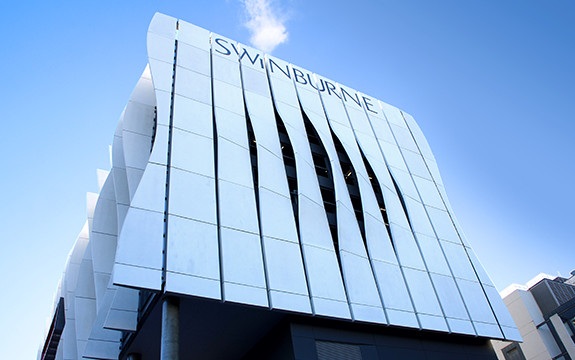Swinburne's LGBTI community comes out

In Summary
As a gay man I am privileged to belong to the Swinburne University community.
Our university has a deep commitment to diversity in all of its forms. Diversity brings strength. Diversity makes us better able to meet the needs of the communities we serve.
This university is made up of staff and students from an extraordinary array of beliefs, genders, ethnicities and identities.
Lately I have had the incredible privilege of working with some of our queer staff and students to explore how we can become a stronger community through more active recognition of diversity in sexualities and gender identity.
LGBTI – Lesbian, Gay, Bisexual, Transgender and Intersex – people are members of the Swinburne community at all levels, from the executive, the academic and professional staff, to the student body and our extensive alumni network.
I know from personal experience that Swinburne has a deep and abiding commitment to working with the LGBTI population to ensure that we are supporting our people and saying no, emphatically no, to the prejudice, hate, discrimination and abuse of queer people that belongs to another century.
Recently we have seen language and discussion in the broader community, and on-campus, that degrades, intimidates and insults LGBTI people.
While community attitudes to LGBTI people are improving (and in my lifetime, dramatically), we must recognise that the world is far from perfect. Intolerance, homophobia, transphobia and misogyny are alive, pervasive and present across age groups, political affiliations, genders and faith. No one group is the standard bearer for homophobia and transphobia, sadly.
But equally and thankfully, friends and supporters of LGBTI people exist across all parts of society, young and old, conservative and progressive, country and city, faith and creed, ethnicity and nationality.
When we at Swinburne witness intolerant and divisive behaviour, how should we respond? How should we as a university community celebrate our diversity and our progress on LGBTI issues, whilst naming and rejecting insults, abuse, derogatory comments and hate speech?
We can do it in several ways. We can be clear about our values of tolerance and inclusion. We can clearly state our commitment to the LGBTI community. We can help staff and students understand the world of LGBTI people and provide the tools that make it easy and OK to have explicit conversations about homosexuality, bisexuality, and trans/intersex issues. We can state what is not OK, the behaviour which we will not tolerate. And we can make sure that our commitment to Swinburne’s queer community is visible around campus and in our policies, strategies, plans, and work/study places.
I am lucky to have been able to be out and proud for my entire career. We are lucky to have queer and queer-friendly colleagues on staff right throughout the organisation. We are fortunate to have bright, brave and vibrant student leaders – in the SSU, and the SSAA - who are committed to supporting LGBTI students and making sure that our university is a leader in the queer community.
But we also have many staff and students who are coming to terms - privately, quietly, anxiously - with their own identities. People who are not out, who are transitioning to their desired gender identity, who are experimenting, who are fearful.
When I was a student at university - decades ago, sadly - we didn’t have social media, but we did have homophobia. A college magazine carried a short, nasty comment about my assumed homosexuality, at a time where I was coming to terms with who I was. The impact on me was significant compounding the sort of fear, anxiety and self-loathing that every young queer person has when they are abused because of who they are.
I can look back at that experience now, comfortable in my skin. But it was devastating at the time. And this is the impact that intolerant hate speech has, right now, on our queer community.
I am proud that Swinburne is in the process of developing an ALLY Network, and our people strategy is up-front and clear that our LGBTI staff and students are welcomed and valued at this university. We have a long way to go, but the will and the drive are there.
Many Australian universities already have ALLY Networks operating very successfully. An ALLY Network promotes visibility and awareness of LGBTI issues and provides a network of LGBTI and non-LGBTI people who are sensitive to and supportive of the needs of queer students and staff.
Swinburne’s HR team have started work on developing an ALLY network that meets the needs of this university. I know from my work with the folk in the SSU and the SSAA that our students are already leading on queer issues. And I know that so many of our staff – at all levels – are eager to get going.
If you’re interested in getting involved with the roll out of the ALLY Network, let me know.
I know the vast majority of you are incredibly supportive of the LGBTI community: in the end it’s that knowledge that strengthens and sustains us and makes Swinburne a truly amazing university.
Jeffrey Smart
Vice-President, International and Future Students

